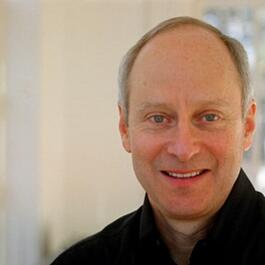
Michael Sandel on the Case Against Meritocracy
David and Helen talk to the philosopher Michael Sandel about the damage that the idea of rewarding people on merit has done to education, democracy and public life. Why is it wrong to try to match the best students to the best universities? What is credentialism and how has it warped the way work is rewarded? Whatever happened to the idea of the common good? Plus we discuss America's sense of itself as God's chosen nation in the age of Obama and Trump. Talking Points: Places like Stanford and Harvard have more than 40,000 applicants for 2,000 places. Most of these applicants are qualified.Michael thinks that universities should admit students based on a lottery.The meritocratic way of thinking about success and social recognition has produced and intensified an epidemic of credentialism. Should elite universities function as arbiters of opportunity?Even going to university hasn’t delivered what people expected. How do we translate what we can see is socially and morally wrong about our society into a different way of economically living? For decades, we have been told that the solution to inequality is individual upward mobility through higher education.The ‘rhetoric of rising’ has run its course.How do we affirm and renew the dignity of work? What kind of jobs has the shift towards credentialism encouraged?There’s a concentration around law and finance, as well as public sector or public administration jobs.The financialism of the economy is an important part of this story.The divide between winners and losers has deepend.It’s not just inequality: the people on top believe that their success is their own doing.Michael thinks that the sense of elites looking down on the less credentialed has fueled the anger and resentment that authoritarian populists have exploited.Could automation displace credentialism? The money people make, or the recognition they receive, is not a measure of their contribution to the common good.It’s easy to outsource this kind of moral judgment to markets, but Michael thinks that’s a mistake.Can we reconfigure the economy to bring about a better alignment between the contributions people make and the rewards and recognition they receive?The pandemic has revealed the importance of jobs that are hugely undervalued, particularly forms of human care. There has been a structural, material transformation in Western economies since the 1980s that has gone hand and hand with the rise of credentialism and financialisation.Industrial manufacturing employment has gone overseas.We are nostalgic about an age that no longer exists, including the role of trade unions, which had power in part because they could disrupt the economy through strikes. What happened to the nation as a source of identity and belonging?The United States is a providential nation; the same forces of meritocracy can be at work at the national level.Is it possible to challenge the sense of providence in American democracy? Mentioned in this Episode:Michael Sandel, The Tyranny of MeritThomas Wolfe, You Can’t Go Home Again Further Learning:Michael in the Guardian: ‘The populist backlash has been a...
From "TALKING POLITICS"





Comments
Add comment Feedback